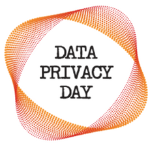In honor of International Data Privacy Day, January 28

All of us exist in digital form on the Internet. When you're online you leave a trail of "digital exhaust" in the form of cookies, GPS data, social network posts, browser searches, and email exchanges, among others. Services that you don’t even use may have information about you. And once something is online, it can be there forever.
It is important to ensure that the digital “you” matches what you intend to share. It is also important to keep what’s private, private, for yourself and when you’re sharing about others. Owning your online presence will help to protect your identity, finances, and reputation – both now and in the future!
Here are some specific steps you can take to protect your online information, identity, and privacy.
- Secure all devices, especially smartphones. Smartphones are a device carried by virtually everyone, and often it contains our most personal information. Whether iPhone or Android, research the best way to secure it for full privacy including options such as remote wipe.
- Use a unique password for each site. That way, if one of your passwords gets compromised, the others are still safe. Use complex passwords and never share them. Using multi-factor authentication (MFA) wherever possible will help protect you even more.
- Use a password manager; UC Berkeley offers free LastPass Premium to all users with a CalNet ID. Using an encrypted password manager to store your passwords makes it easy to access and use a complex, unique password for each site.
- Know what you are sharing. Check the privacy settings on all of your apps and social media accounts to ensure that they are set to share only what you want; with whom you want. Don’t rely on the default settings.
- Guard your birth date and telephone number. These are key pieces of information used for verification, and you should not share them publicly. If an online service or site asks you to share this critical information, consider whether it is important enough to warrant it.
- Keep your university and personal presences separate. Use different accounts for each.
- There are no true secrets online. Use the postcard or billboard test: Would you be comfortable with everyone reading a message or post? If not, don't share it.
But don’t stop there!
Also check out these other important cybersecurity habits to help protect your information, your family and your work. They'll also reduce your risk of getting scammed!
*article courtesy of UCOP
